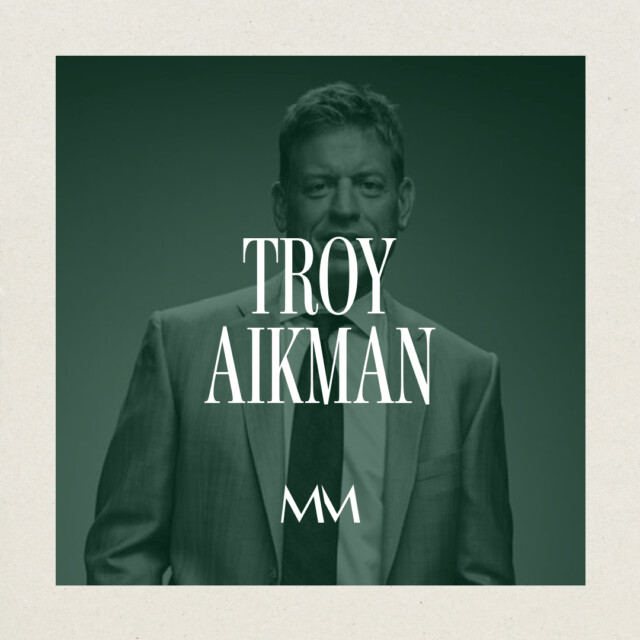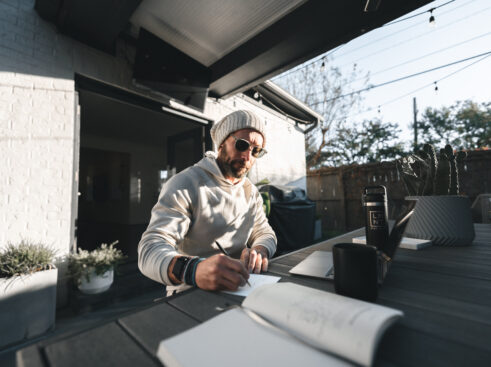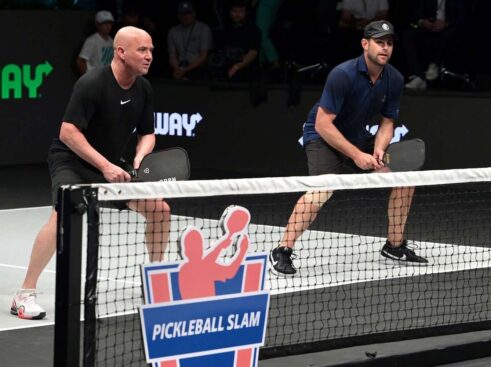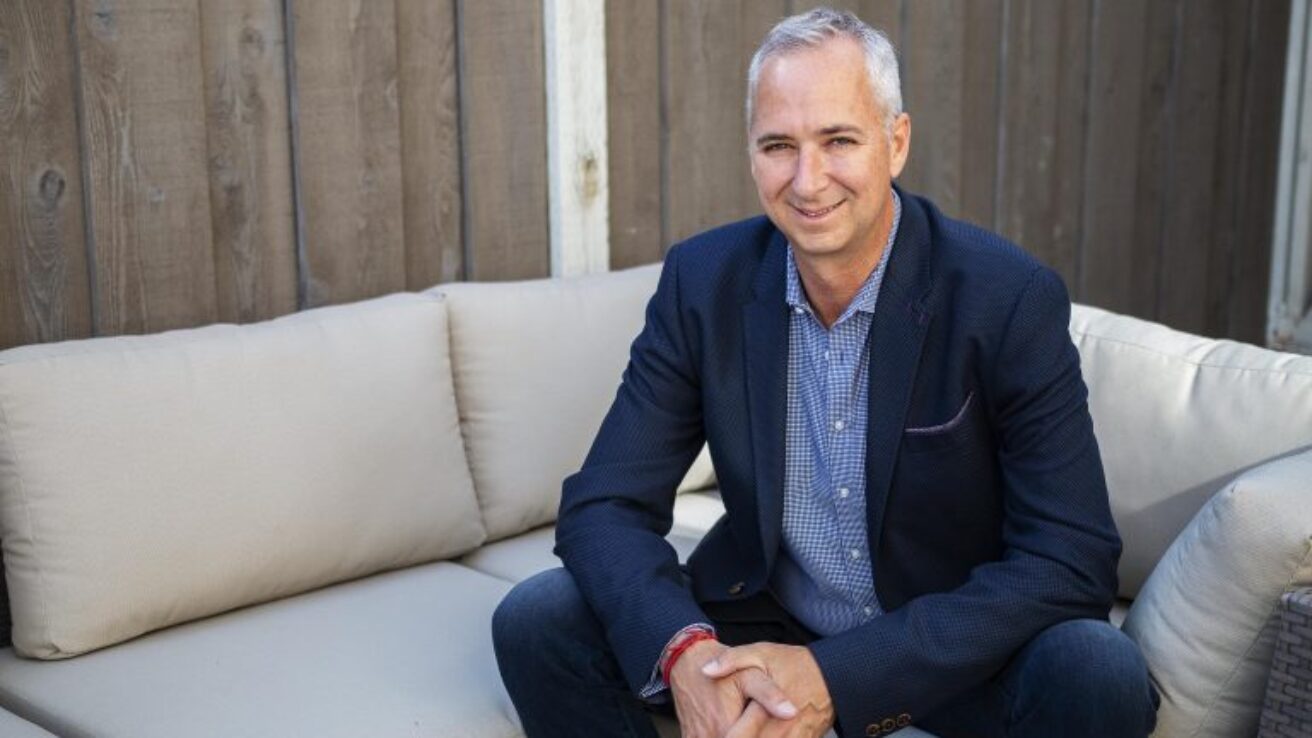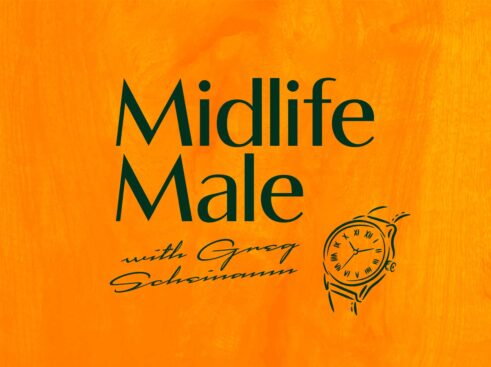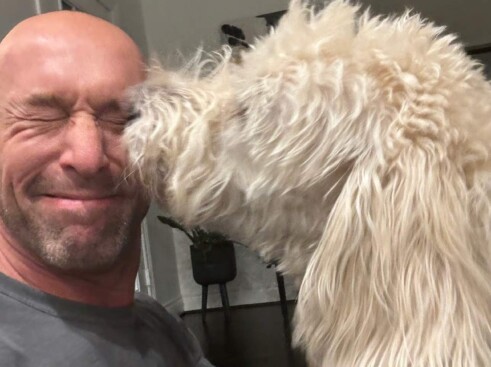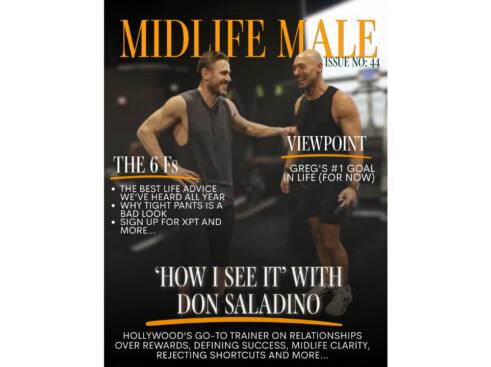Cameron Herold, known as “the COO Whisperer,” is the founder of the COO Alliance and host of the Second in Command podcast. By the age of 35, he had already helped build two companies to $100 million. At 42, he led 1-800-GOT-JUNK? to remarkable success, driving its revenue from $2 million to $106 million in just six years.
As a best-selling author, in-demand speaker, mentor, and coach, Cameron has guided hundreds of clients worldwide on how to double their revenue and profit within three years. He is also the top-rated lecturer at EO/MIT’s Entrepreneurial Masters Program and a sought-after speaker at global entrepreneur and leadership events, both online and in person. Cameron is directly responsible for MLM Founder Greg Scheinman’s own career transformation and in this conversation they discuss what midlife means, vivid vision statements, personal coaching, the drawbacks to change, setting priorities and accepting when you need help.
Here is this week’s How I See It:
Greg Scheinman: You mentioned before we began recording that you are content to be in midlife. How do you define that?
Cameron Herold: I couldn’t be happier to still be midlife. I’m pushing 58, or actually, I am 58 right now. I don’t know exactly when I become a senior, but I think it’s around 65, so I have a few more years left to enjoy being midlife. Historically, midlife seemed like a different phase, but now, I see it as something that extends further. My brother, for example, has competed in the long drive worlds three times, and their seniors category starts at 55. He jokes about getting senior discounts with his seniors card, but I always tell him, “You’re too young for that!”
I remember when I was 42, a doctor referred to me as midlife, and it made me nervous because I associated it with getting older. But now, as I’m squarely in midlife, I don’t feel old at all. In fact, I chatted with my grandfather when he was 96, and he once told me, “I don’t feel as old as you look.”
That was 15 years ago, and I was trying to grow my hair out then, clearly going through a midlife crisis. I weighed 40 pounds more than I do now, wasn’t happy, and wasn’t exercising. But today, at 58, I’m probably in the best shape, the best mindset, and the happiest I’ve ever been. I see midlife as stretching out to around 75. That’s when I’ll consider myself a senior—when I can no longer be active, like skiing, hiking, or walking the golf course without a cart.
Greg Scheinman: We first met at an EO speaking engagement in Houston about five or six years ago. Do you remember that?
Cameron Herold: Yes, I do a lot of these, but I remember my first EO Houston engagement back in 2007. That was during my midlife crisis. I was leaving 1-800-GOT-JUNK, deeply unhappy in my first marriage, gaining weight, drinking a lot, and not exercising. When we met, I was in a much better place, but I’m even better now.
Greg Scheinman: I can relate. Your talk about “Vivid Vision” really resonated with me. It helped me craft what I now call my “Midlife Action Plan.” Can you share how this idea came about for you?
Cameron Herold: That’s exactly why I wrote my first personal vivid vision—my own midlife action plan. I had been using vivid visions in business for years, describing what my company would look like three years out, but I never thought to do one for my life. About a year and a half ago, my wife and I even wrote a vivid vision for our marriage.
Writing a personal vivid vision helped me make serious, conscious changes. It forced me to confront my own issues and have honest discussions with my wife about what was important to me. Sharing it with friends and family also held me accountable and made my goals feel more tangible and real.
Greg Scheinman: That’s powerful. How did you overcome your own midlife crisis back in 2006-2007?
Cameron Herold: It all started when I realized I was deeply unhappy. I was buying a pair of plaid Madras pants at a J. Crew in San Francisco, trying to relive my youth. The young guy at the counter even said, “Dude, buy the Porsche, not the pants.” That comment made me realize I didn’t like who I was becoming. That summer, I went to Burning Man for the first time, and it was eye-opening. I realized I was in an unhappy marriage, and I knew even on my wedding day that it was a mistake.
I needed to make changes but also wanted to honor my ex-wife as the mother of my kids. So, I began taking care of myself—working out, eating healthier, and eventually quitting smoking. I was 42 pounds heavier than I am now, and I started cutting back on drinking. Two years ago, I even wrote a new vivid vision, which helped me drop more weight, and 11 months ago, I quit drinking altogether. I’ve been working with therapists, counselors, and coaches to continuously grow, not because I’m broken but because I want to grow.
Greg Scheinman: It sounds like this process was transformative. What’s been the biggest shift for you?
Cameron Herold: The biggest shift was embracing the idea of “doing the work” on myself. I used to see it as a sign of weakness, but now I view it as an opportunity for growth. Working with a somatic sex coach, talking openly about my problems, and committing to self-improvement has helped me grow richer relationships with my spouse, kids, and even myself. I used to feel like getting help meant there was something wrong with me, but now I’m excited to do the work because it makes my life more fulfilling.
Greg Scheinman: What cost did making these changes come at for you?
Cameron Herold: It cost me a lot, including relationships with friends and my kids. There was a time when I was doing cocaine at home by myself, using it as an escape. I was eating poorly, breaking bones from trying to ski like I did in my 20s, and missing entire ski seasons with my kids. That behavior hurt my relationships and my time with myself. I didn’t have honest relationships with friends; I was just going through the motions and missing out on life.
I remember having breakfast with my friend Ken Sim, now the mayor of Vancouver, about 15 years ago. He asked how I was, and I said I was fine, but then I stopped and admitted, “No, I’m really sad.” That was the first time I was honest about my struggles. So, the costs were huge—missed opportunities, unhappiness, and just not enjoying life. We only get one life, so we might as well make the most of it.
Greg Scheinman: Did the financial aspect play a role in making these changes? Did you quit your job, or did you change while still working?
Cameron Herold: You can absolutely make a change, even if it means quitting your job. People often think they can’t, but that’s not true. Our great-great-grandparents made huge changes, like moving to a different country. So yes, you can sell your house, move to a condo, quit your job, or even move to a different city. Nothing is handcuffing you except yourself.
Greg Scheinman: How did you go about making a plan for these changes?
Cameron Herold: I already had the money, but I was still struggling internally. My wife and I decided to make drastic changes three years ago. We sold everything—my homes in Arizona and Vancouver, our cars, our furniture. I now own only a few pairs of jeans, a few shirts, and that’s it. We got rid of everything so we could travel and live globally. We’re ticking off bucket list items every couple of weeks by choice.
Greg Scheinman: Can you share how you create and live this nomadic lifestyle, and what goes into your bucket list?
Cameron Herold: Right now, I’m in Vancouver to spend time with my two boys, aged 21 and 23. I made a conscious choice to be here, while my wife is in Bali, which gives us some space apart. We’ve been traveling together non-stop for almost three years, and we wrote in our shared vivid vision that taking time apart is important for us to reconnect later.
We plan our lives around big events and experiences. For example, we have a few major events on the calendar over the next few months, like a biohacking summit in London, an entrepreneur experience in Laos and Cambodia, and even a health cleanse retreat in Palm Desert. We’re also exploring the idea of buying property in Northern Italy and Dubai, which we see as our future hubs.
We put all these things in our calendar and then plan everything else around them, like personal growth and health. For instance, we work with coaches for relationships, health, and even a sex coach. We make time for personal training, nutrition, and health checks. All of these investments ensure we’re living our best lives.
Greg Scheinman: Does it ever feel like it’s too much, even though you’re choosing all of it?
Cameron Herold: It can be overwhelming. In the past three years, we’ve visited 49 countries, which means we’ve had to find 49 new gyms, yoga studios, trainers, grocery stores, and coffee shops. That part is challenging, but what’s harder is remembering the boredom of my old life—working all day, catching up at night, eating junk food, and watching TV. That was hard. The routine was hard. Getting injured trying to relive my youth was hard. What I’m doing now might be exhausting at times, but it’s a fulfilling exhaustion. I’m engaged, excited, and happy, and that makes all the difference.
